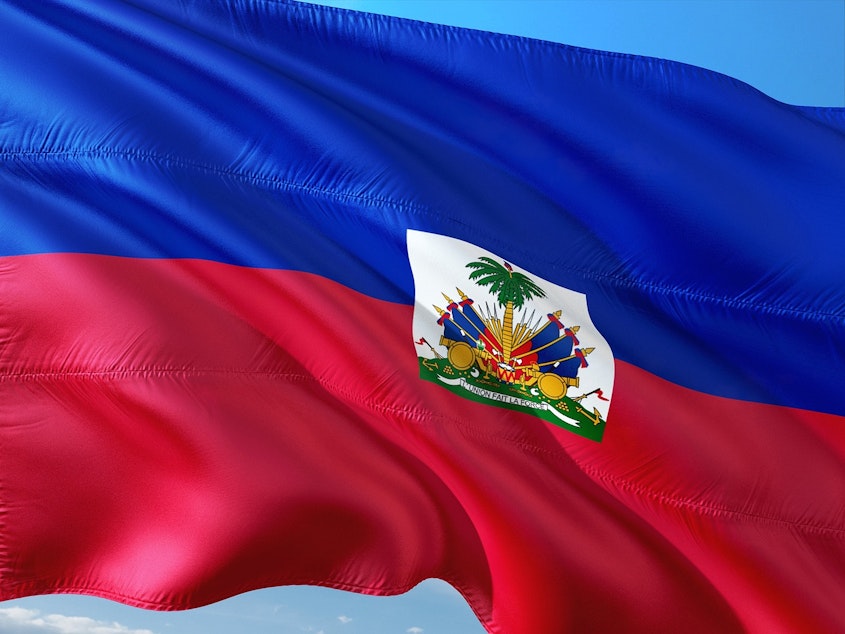'Asking for the right to dream.' The view of Haiti’s gang crisis from Seattle

On Monday, at least a dozen people were found dead in the streets of Port-au-Prince, Haiti. Four electrical substations were also destroyed, leaving swaths of the city in the dark — including a local hospital.
The situation in Haiti, which is caught in the grip of a weeks-long outbreak of gang violence, is “90% chaos,” according to Pierre Stanley Baptiste, the managing director and co-founder of the co-working space Impact Hub Port-au-Prince. The Impact Hub is supported by Kay Tita, a Seattle-based social impact organization that supports Haitian entrepreneurs and small business owners.
For the last 20 days, Baptiste has been trapped in northern Haiti, unable to get home as gangs demand amnesty and a say in who will lead the country once Prime Minister Ariel Henry resigns.
"My wife was seeing dead bodies on the streets," Baptiste said. "It's not an easy moment for someone to live in right now.”
Following former Haitian President Jovenel Moïse’s assassination in 2021, the country hasn’t held a legislative election; as of last year, no democratically elected members of Parliament remain in office.
Sponsored
That political vacuum helped weaken a police force that was quickly overwhelmed by gangs earlier this month.
Most of the officials who are left, Baptiste said, don't have the will of the people behind them. Police are trying their best, but they don't have the right resources, he added.
"We're kind of by ourselves as a population. It's not like we are being protected or thought of," he said.
For almost a decade, Baptiste said, it's felt like the situation has gotten progressively worse. And he understands why, in feeling forgotten and powerless, some Haitians would choose to "dance with the devil."
"We are asking for the right to dream," he said. "Imagine you live in a country where you cannot dream. You cannot dream for better tomorrow because there's no way you can see that better tomorrow."
Sponsored
Moving on from the violence must involve concessions by those in power, including banks, the private sector, and the gangs that run much of the country, in addition to a ceasefire and efforts by the government to rebuild trust with citizens, Baptiste said.
Yvey Valcin is a master stylist and founder of Yvey salon, located in Capitol Hill’s Chophouse Row. He’s also Haitian and has been watching the rapidly deteriorating situation in Haiti closely — and it's scary, he said.
"I have not been doing too well with this from a personal level,” he said. “It's a country that I love."
He also has larger questions about the crisis — and where these gangs are getting firearms from.
Meanwhile, the full scope of any foreign intervention in Haiti’s current affairs remains to be seen. But since the country declared its hard-won independence from France in 1804, it’s faced a pattern of international intervention during times of crisis.
Sponsored
That intervention has created a sort of parallel state, which provides services but can't be held accountable by the public, said Jake Johnston, a senior research associate at the Center for Economic and Policy Research in Washington, D.C, and author of the new book “Aid State: Elite Panic, Disaster Capitalism, and the Battle to Control Haiti.”
"The combination of those factors has really eroded any notion of a sovereign democracy in Haiti,” he said.
For Valcin's part, whatever happens next for the country, he hopes it’s Haitians who are making those decisions.
"I have hope,” he said. “Once the Haitian people decide what they really, really want for themselves, they can come together and make that decision."




